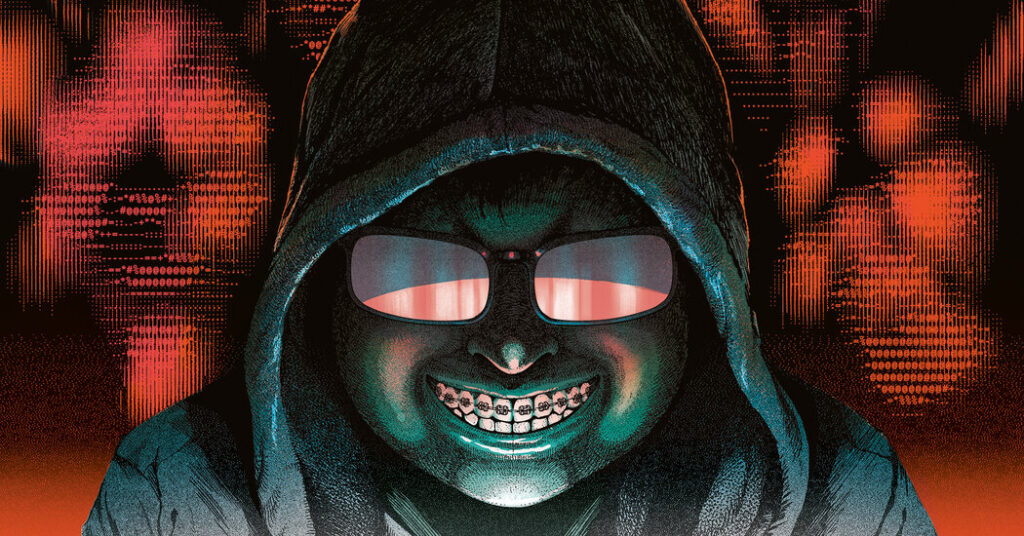A quiet honor student who had recently graduated from Immaculate High School in Danbury, Veer Chetal was about to begin studying at Rutgers University in New Jersey. In 2022, he completed a “future lawyers” program, and a story that year on the Immaculate website showed a photo of a smiling kid with glasses wearing a Tommy Hilfiger windbreaker over a red polo.
Classmates remember Chetal as shy and a fan of cars. “He just kind of kept to himself,” says Marco Dias, who became friends with Chetal junior year. According to another classmate named Nick Paris, this was true of Chetal until one day in the middle of his senior year, when he showed up at school driving a Corvette. “He just parked in the lot. It was 7:30 a.m., and everyone was like, What?” Paris says. Soon Chetal rolled up in a BMW, and then a Lamborghini Urus. He started wearing Louis Vuitton shirts and Gucci shoes, and on Senior Skip Day, while Paris and many of his classmates went to a nearby mall, Chetal took some friends, including Dias, to New York to party on a yacht he had rented, where they took photos holding wads of cash.
Chetal said that he had made his money trading crypto; Dias says Chetal showed him trades on his phone as proof one morning during homeroom class. Once, Chetal rented a large house in Stamford, Conn., and hosted a three-day gathering with friends. “I was in the basement at one point, and I was just messing around with my friends, and I just see him, like, just on the couch, just like on his phone, pretty much avoiding everyone at the party,” Dias says. “And I thought, Oh, that’s kind of weird.” Paris remembers that during a school parade, the police stopped Chetal in his Lamborghini Urus for a traffic violation. “He literally called his lawyer on the spot before answering the cops’ questions, which everyone was like: Wow, this guy’s got, like, something going for him. Like, this guy’s got serious money.”
Independent investigators say Chetal was secretly a member of the Com, also referred to as the Comm or the Community, an online network of chat groups that has its roots in the hacking underground of the 1980s and functions as a kind of social network for cybercriminals or aspiring ones. In an affidavit from an unrelated case, an F.B.I. agent described the Com as “a geographically diverse group of individuals, organized in various subgroups, all of whom coordinate through online communication applications such as Discord and Telegram to engage in various types of criminal activity.” According to the F.B.I. affidavit and experts who study the Com, the various subgroups’ activities include swatting, which entails making false reports to emergency services or institutions like schools to trigger a police response; SIM swapping, when hackers take over a target’s phone number, sometimes by tricking customer-service representatives; ransomware attacks, using a malware that denies users or organizers access to computer files; cryptocurrency theft; and corporate intrusions.
Allison Nixon, the chief research officer of Unit 221B, a collective of cybersecurity experts, has been following this growing corner of the internet since 2011 and is widely considered to be a pre-eminent expert on the Com. She says most Com members are young men from Western countries. In group chats, many talk about college and taking classes in cybersecurity, which they use to their advantage, she says. The gateway for many is through video games like RuneScape, Roblox and Grand Theft Auto.

